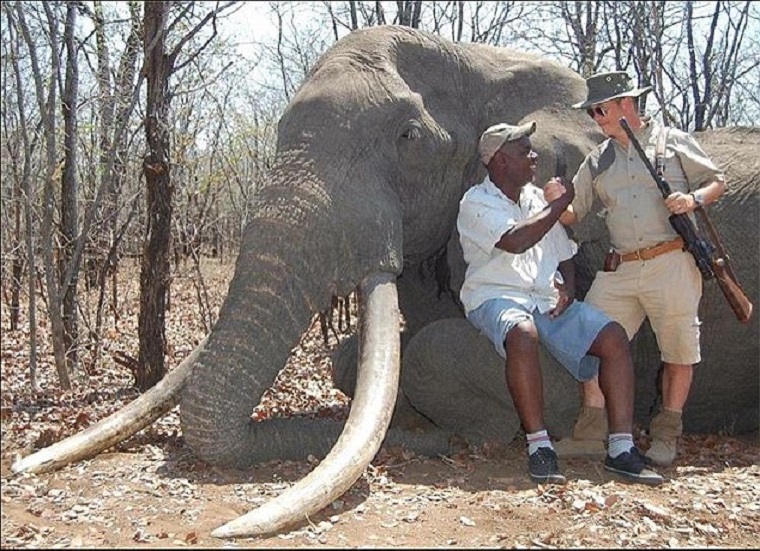“We expected the Biden administration would have halted everything and taken a hard look and made some tough decisions that maybe this isn’t something we should be doing given the biodiversity crisis,” said Tanya Sanerib, senior attorney at the Center for Biological Diversity. “So to have the reality be the exact opposite of that, it feels like whiplash.”
For trophy hunters and big game groups, the reversal came as a long delayed win.
“It’s a victory for conservation because in a lot of these places where elephants reside, the habitat is only made available because of hunting dollars,” said Lane Easter, 57, an equine veterinarian in Texas whose trophy permit was approved under the settlement for a Zimbabwe hunt he did in 2017.
The majority of trophy hunters are from the United States. Under the federal Endangered Species Act, hunters must prove before they import a trophy that killing the animal aided in the “positive enhancement” of a species.
The Fish and Wildlife Service’s perspective, which predates Mr Biden’s election, is that trophy hunting can qualify as species enhancement if it’s “legal, well-regulated hunting as part of a sound management program,” the agency spokesperson said.
Big game hunters say that the money they spend on hunts is later invested in the rehabilitation of the species and economically benefits nearby communities, preventing poaching. They also say that hunting certain animals like elephants and lions can benefit overall herd health.
Hunters can spend upward of US$40 000 on an African hunt in Zimbabwe, Tanzania, Zambia and Namibia, and many of them win the rights through bidding wars held at national conferences like the Safari Club International’s annual convention.
But groups like Humane Society International say that hunting a species does not benefit its survival and that the Fish and Wildlife Service should not allow paid hunts to qualify as a method of species enhancement, especially on animals the United States considers threatened. The International Union for Conservation of Nature in 2021 revised its listing for both species of African elephant to highlight that both are at greater risk of extinction.
Critics also say there is little proof that money paid for a hunt ultimately helps the species recover, especially when corruption has been found to be rampant in several of the countries where African elephants reside.
“There is no evidence that trophy hunting advances conservation of a species,” said Teresa Telecky, a zoologist and the vice president of wildlife at the Humane Society International.
When Donald Trump was elected president in 2016, big game hunters expected it would be easier to import elephant trophies. The week before Thanksgiving in 2017, the Fish and Wildlife Service reversed an Obama-era ban, allowing hunters to import elephant trophies from several African countries.
The news set off a storm of disapproval and criticism, with even staunch allies of Mr. Trump warning the move might increase the “gruesome poaching of elephants.”
Continued next page
(93 VIEWS)


